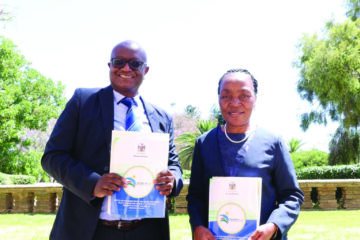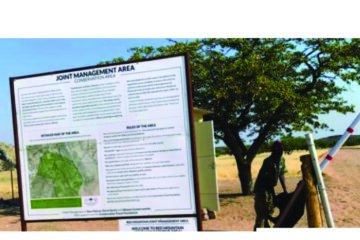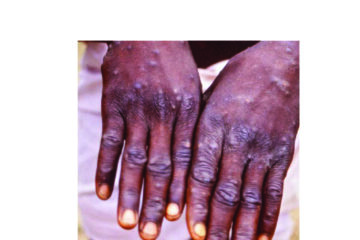Martin Endjala
Officials tasked with registering people in need of drought food aid reportedly refused to add several households in rural areas to the list.
According to Hangula Toivo, the caretaker of a house in Cham Cham village in Nehale Lya Mpingana Constituency in the Oshikoto Region, the house owner’s employment in the city disqualifies him from receiving food.
“The owner does not live here, I do. Why must I now be denied the chance to get drought food like everybody else? Whoever came up with such a concept is wrong. We barely have enough money to buy bread, and now they’re telling me I need to ask my employer to raise my salary,” he said.
Toivo added that his employers work for the government as officials and police officers in Windhoek and pointed out that other housekeepers in the area received food aid.
Another resident from Ondjiyala in Okatjali constituency, Lavinia Shikongo who is in her 70s, said she was told that her sons are employed and that they should look after her.
“I am the owner of the house, and I live with two small children, but I was told my sons, who live in Windhoek and Walvis Bay, should look after me. Does the drought only affect those in the village?” she asked.
She added that some people have experienced discrimination because of the presence of buildings in some homesteads.
Timo Kambonde, the headman of the Uutele area, explained that they do not prevent people from registering but are guided by the provisions of the central government.
“The challenges we face are that some of the people are from neighbouring countries (Angola) in search of greener pastures and often do not have national documents,” he said.
Kambonde went on to say that they cannot register a household owner without their knowledge because they risk lawsuits, particularly if the owners are government officials.
He reiterated that the provisions prohibit government employees from registering.
He also mentioned that a household owner cannot register in more than one town, especially if they own multiple homes.
“That owner will have to choose which house they want the food to be given to,” said Kambonde.
John Moonde, the constituency councillor of John Pandeni Constituency in the Khomas region, questioned why people should be discriminated against when they are hungry.
“The process initially used for food should be given to those with mahangu fields, but that is no longer the case because everyone is affected. That is why we have incidents of people stealing food in urban areas,” he said.
According to the Office of the Prime Minister executive director, I-Ben Nashandi, the current provision on drought food aid is for households, not homeowners.
“Firstly, when we register people for drought food, we look at the number of people in that household and who the house owner is. We then determine their earnings if they are all working. We put all their earnings together to see if their income is N$3100, which is the benchmark for working people to qualify for the programme; not one individual earning N$3100, but a collective of their income must be at least of that amount, then they are eligible,” he said.
Nashandi further clarified that only household owners can register in the system for a single constituency or town, not for multiple homes they own.
He explained that registering a household owner’s name on the food program helps with traceability.
He emphasised that the only option is to select which household is eligible to receive drought food.
Nashandi said that those looking after houses on behalf of the owners who earn more than N$3100 will unfortunately not qualify for the food programme.
“That responsibility lies with the employer to ensure they care for their employees. The state does not have enough funds to be responsible for that. We are helping those who are really in need. If you are earning a better salary or looking after the house or farm of your employer, it is their duty to ensure they look after you,” he explained.
Nashandi went on to clarify that this also applies to people who live in the homes of their relatives and those who earn more than N$3 100.
Nashandi clarified that, despite not living at these homes and only visiting on holidays, working children are responsible for caring for their parents.




